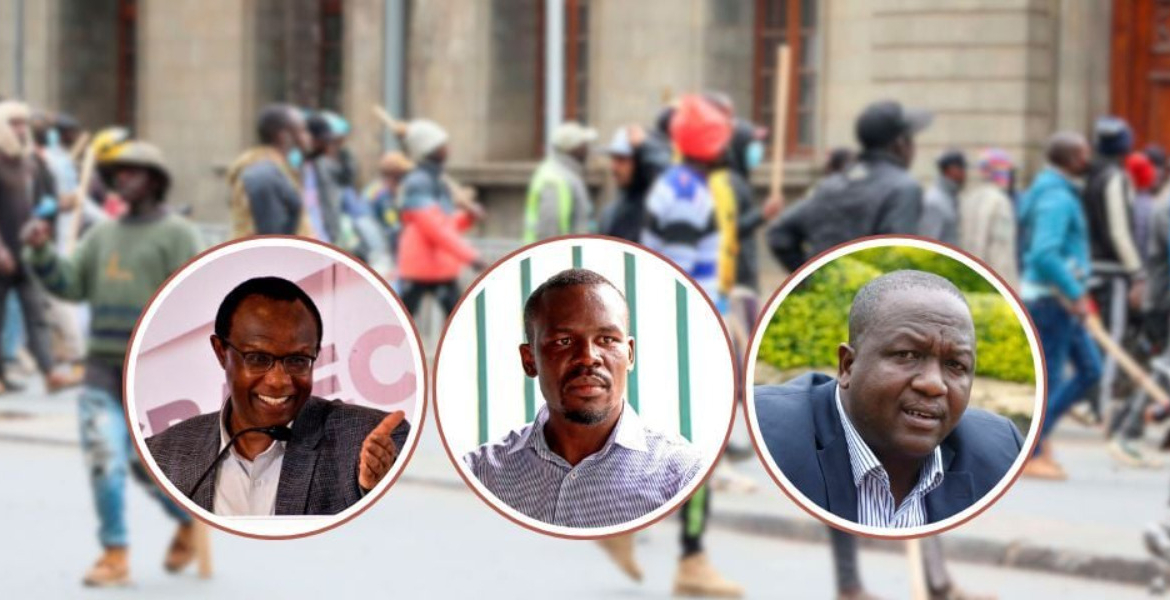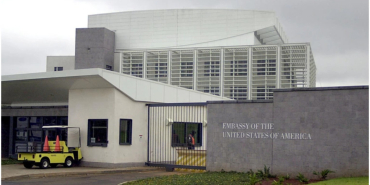Ruto Allies Turn Up the Heat Ahead of Protest Anniversary

As Kenya prepares for a fresh wave of youth-led demonstrations commemorating the anniversary of the June 25, 2024, storming of Parliament, tensions escalate amidst inflammatory remarks from high-ranking government allies.
These protests, largely organised by Gen Z activists, commemorate the victims of last year's deadly unrest and demand justice and accountability, triggering strong reactions from within President William Ruto's administration. Recent statements made by key figures within President Ruto's inner circle raise concerns about the government's approach to dissent.
Dr David Ndii, chair of the President's Council of Economic Advisers, faces scrutiny for his provocative social media posts. In one widely circulated comment, Dr Ndii warned a user to "say your goodbyes before you leave home just in case you catch a stray."
He also described young protesters as "stupid young people," invoking historical precedents of fatal consequences for defiance. "There will be no unconstitutional change of government in Kenya," he said, adding, "My generation also had its heroic stupid young men. They were hanged. We learnt."
These comments are widely interpreted as a tacit endorsement of state violence, especially given the heavy-handed police response to last year's demonstrations, which resulted in the deaths of several young Kenyans. Families of the deceased vow to participate in the upcoming protests, seeking justice and state accountability.
Adding to the volatile atmosphere, Tiaty MP William Kamket threatens to mobilise Pokot youth to confront demonstrators in Nairobi. Speaking at a rally in Sigor, Kamket asserts that the violence of past protests pales in comparison to what awaits this time.
"Let them try again, we will know there are Pokot youth," he said, boasting of their readiness to "chase them around the city till they learn a lesson."
In Nyamira County, National Assembly Majority Whip Sylvanus Osoro echoes a combative sentiment, warning that it will not be "business as usual" for those who take to the streets. He accuses opposition-aligned MPs of inciting unrest and seeking anticipatory bail in anticipation of arrest.
"You have even gone to court and obtained anticipatory bail. We are telling you that this time it will not be business as usual," Osoro stated.
Critics note that these declarations, made on the eve of protests expected to draw thousands of young Kenyans, risk inciting violence and infringing upon the constitutional right to peaceful assembly. The National Cohesion and Integration Commission (NCIC) faces mounting pressure to act against leaders accused of stoking ethnic and political tensions. NCIC Commissioner Danvas Makori acknowledges the gravity of the situation, affirming that action will be taken against those whose words may incite violence.
"Nobody is more special than the other because before our Constitution, we are all equal," he said. However, Makori highlights institutional challenges in securing timely evidence from the Communications Authority of Kenya. "We would rather be patient, adduce all the evidence and then action is taken," he explained, citing past delays that hindered prosecutions.
The National Police Service issues a stern warning against the hiring of private security by business owners during the protests. Police Spokesperson Michael Muchiri emphasises that only the police are legally authorised to provide security, and that any youth hired to protect property will be in breach of the law.
"Any youth being asked to show up in the protests and protect businesses should know that they are breaching the law to the highest degree," he cautioned.
Kenya Kwanza leaders accuse opposition figures, including former Deputy President Rigathi Gachagua and Wiper Party leader Kalonzo Musyoka, of orchestrating the protests to destabilise the government. National Assembly Speaker Moses Wetang'ula and Kikuyu MP Kimani Ichung'wah both claim the demonstrations are a deliberate campaign to incite chaos.
"This is no longer about freedom of expression," Ichung'wah asserts. "This is a deliberate attempt to destabilise the nation and derail our development agenda."
However, for many young Kenyans, the protests transcend partisan politics, addressing systemic grievances such as unemployment, economic inequality, and a perceived disconnect between the ruling elite and ordinary citizens. The June 2024 uprising was fuelled by frustration over punitive tax policies and a sense of betrayal by leaders accused of prioritising opulence over public service. The government's response is varied.
While some officials, such as Cabinet Secretary Geoffrey Ruku, call for dialogue and acknowledge the legitimacy of youth concerns, others adopt a more confrontational stance. The contrast reflects an internal struggle within the administration regarding engagement with a generation that is increasingly vocal, digitally mobilised, and resistant to the status quo.








Add new comment